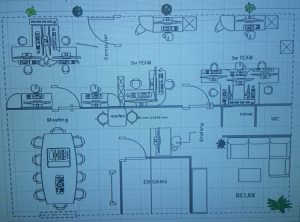SEO stands for search engine optimization, and it refers to practises that help your website become more visible in the natural search results for the people who are looking for your brand, product, or service via search-engines like Google, Bing, or Yahoo.
FAQ - GENERAL SEO
SEO is not something you pay someone to take care of technically behind the scenes without your involvement as a business owner or marketer. SEO is a process that needs to be integrated into all your marketing, writing, publishing, and customer targeting activities.
Because it can send you qualified leads who are ready to buy your products or services, often the same day they search. Many business owners we network with tell us they’ve historically gotten their leads through their network and referrals. Those are kinds of customer leads. Inbound online searches is another kind of lead: one that brings business to you that had never heard of you before.
Yes! Generally, B2C companies who need to make lots of individual, point-in-time sales like plumbers, roofers, real estate agents, salons, used car lots, etc.
For someone like an executive business coach who needs to reach 10-20 CEOs in the region, LinkedIn would probably be a better tool than blogging and hoping these 20 people came to his website after doing a search.
When the keyword research shows hundreds of people are searching locally every month for what you sell and you’re not appearing at the top of page 1.
Note, you need to check your SEO with a private browsing window to clear out everything Google knows about you based on your search history, Gmail, and location.
Change it from a brochure people check out after they’ve already heard of you into a lead generation tool that brings prospects and customers to you.
Note that you need a good website with clear “calls to action” (like Call Now or Contact Us) so the visitor traffic that comes to your site contacts you or comes to your physical location.
Social media can be a way to promote your blog content and bring people to your website for content they will find useful. Give first in the form of knowledge, and receive business second.
Free:
- Google autosuggest in the search box
- related searches at the bottom of the results page
- Google AdWords Keyword Planner
Paid:
- SEMRush
- MozPro
- Majestics
- AHREFS
As mentioned before:
- Keyword research
- onsite SEO optimization
- directory citation building
- offsite SEO
- ongoing content creation answering your prospect’s and customer’s questions
- link building and outreach.
You can also Google search for a local SEO checklist.
Organic results are the results that appear in the natural listings area of the search results page. The paid search area is the top 4 results above the organic area, and they have a little “Ad” notice next to them.
Meta description is the text that appears below your page in a search engine result that explains what the page is about. The meta description “Learn the elements required to write a complete blog post in just 11 easy steps. Meta descriptions do still matter, just not in the same way they used to. They used to be used to optimise for keywords so crawlers would know more about your page contents. Now it’s more important you write something compelling that makes readers want to click so you can improve conversion rates.
Your primary domain should not include a keyword just for the sake of keyword optimisation; this can actually hurt your SEO efforts. If your company name happens to have a keyword, that’s fine, but don’t go buying whoarethebestlawyserinlondon.co.uk
Unfortunately there’s no correct formula, mostly because that’s the wrong way to think about keyword optimisation, you should have great content that’s useful to your customer or client, and write naturally about your product of service – Google will work out the rest. There’s no keyword density you should be aiming for, using a keyword too many times can result in a penalty due to keyword stuffing. Just keep the user in mind, and only use keywords when you need to.
Internal links are links created on your site that go to other pages on your site, or other websites. Inbound links are links created on other websites that then link to your site.
This is a file that gives search engines info about the pages you want indexed or crawled. You can find this page by going to our robots.txt file at http://easy-seo.eu/robots.txt.
This file is an index of all the pages on your site, it’s a quick reference guide for search engines to list your content – that you want indexed. Usually it is found at the bottom of the website inside the footer.
When search engines look through the content on your website, they are crawling your site. As they crawl your site they index content that appears in the search engine.
It’s as easy as typing in site: www.YOURDOMAIN.com to find the pages on your site that are indexed.
Search engines cannot read images but they can read text, the alt text helps them work out what the images are. If a page doesn’t load for some reason, people can still find out what the image is by reading the alt-text.
There are a few different factors that will determine how quickly – or slowly results will show. This list includes, but isn’t limited to:
- How much content is created
- The quality grade of the content
- How the content resonates with your audience
- If you’re a big or small site with strong or weak domain authority
- Visitor engagement
A large site could possibly see results in a couple of days if a search engine is crawling their site regularly. Smaller sites will most likely take longer because they get crawled less frequently. Your wait could be weeks, or months depending on all sorts of factors.

We do not only provide SEO and Internet marketing services but we also offer a wide array of related services such as SEO friendly web design, pay per click, affiliate marketing, website audits, social media optimization, branding and several others.
We are a team of online marketing professionals. We understand the search engine ecosystem. Our unique approach to SEO allows us the capability to take your site to the top of major search engines.
EasySEO is a trading name of Brannon Ltd. which registered office is located at 27 Old Gloucester Street, London WC1N 3AX, United Kingdom. You can contact us by Phone on +44(0)20 3885 1419 or drop us a line through our contact form.

